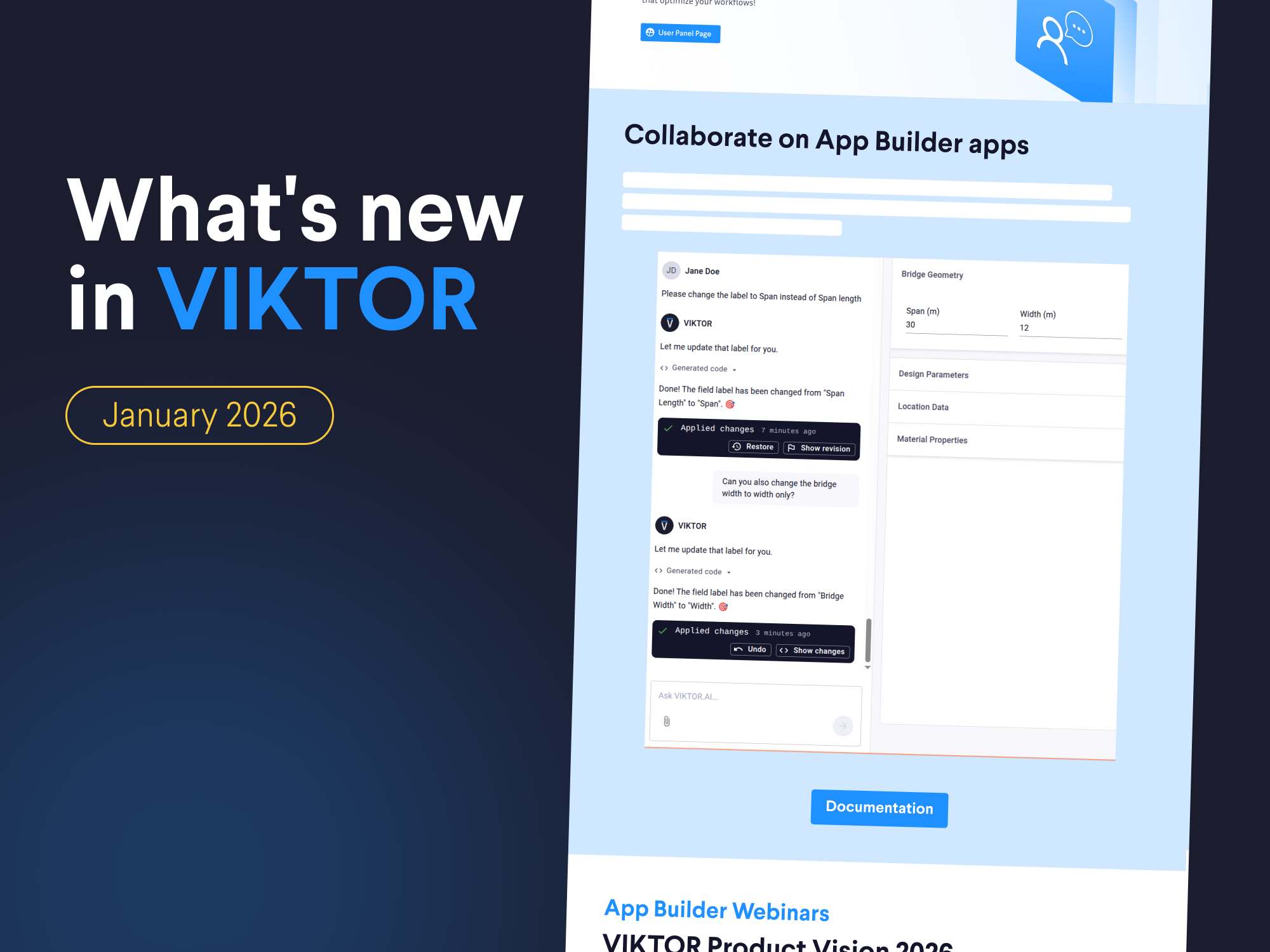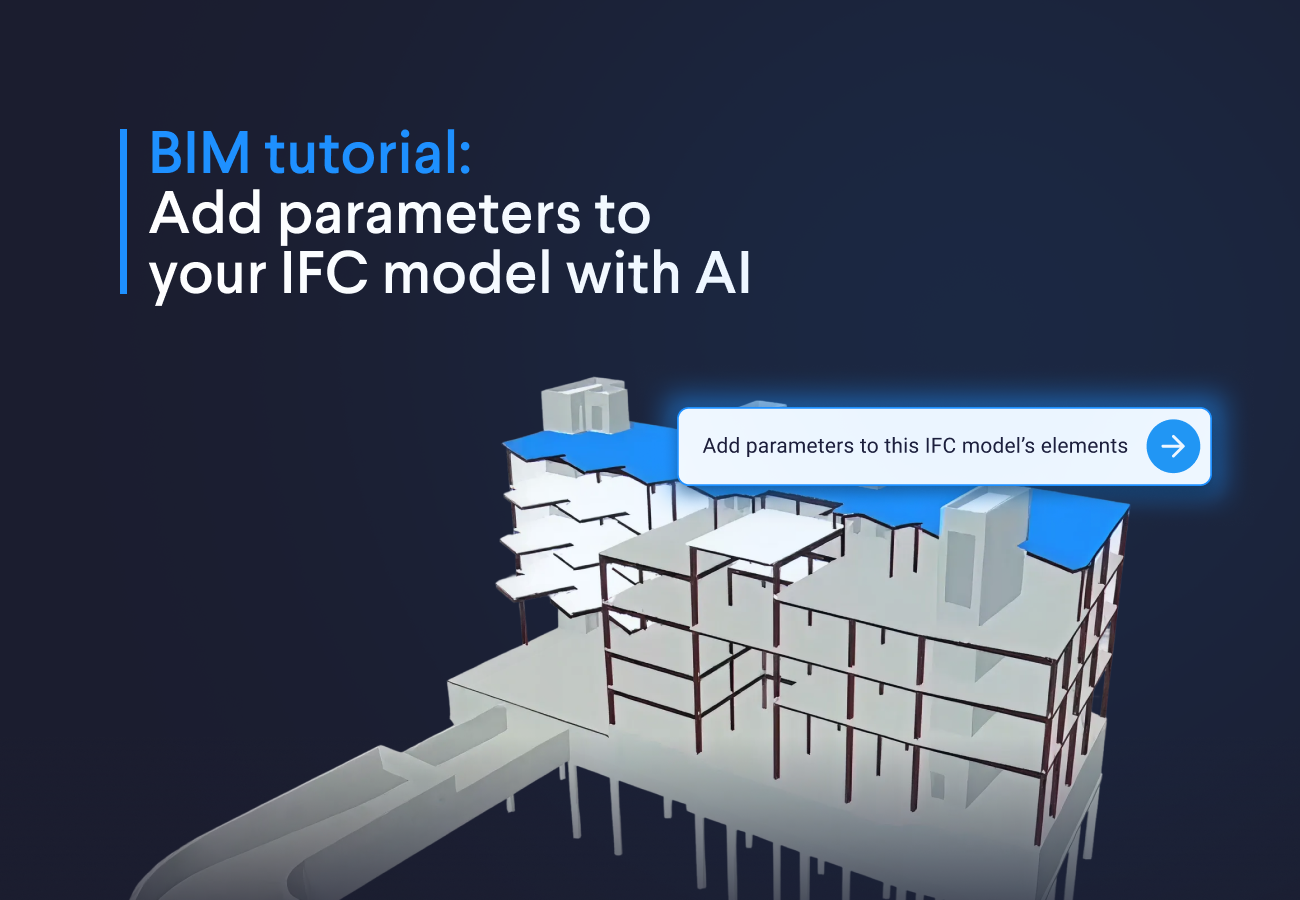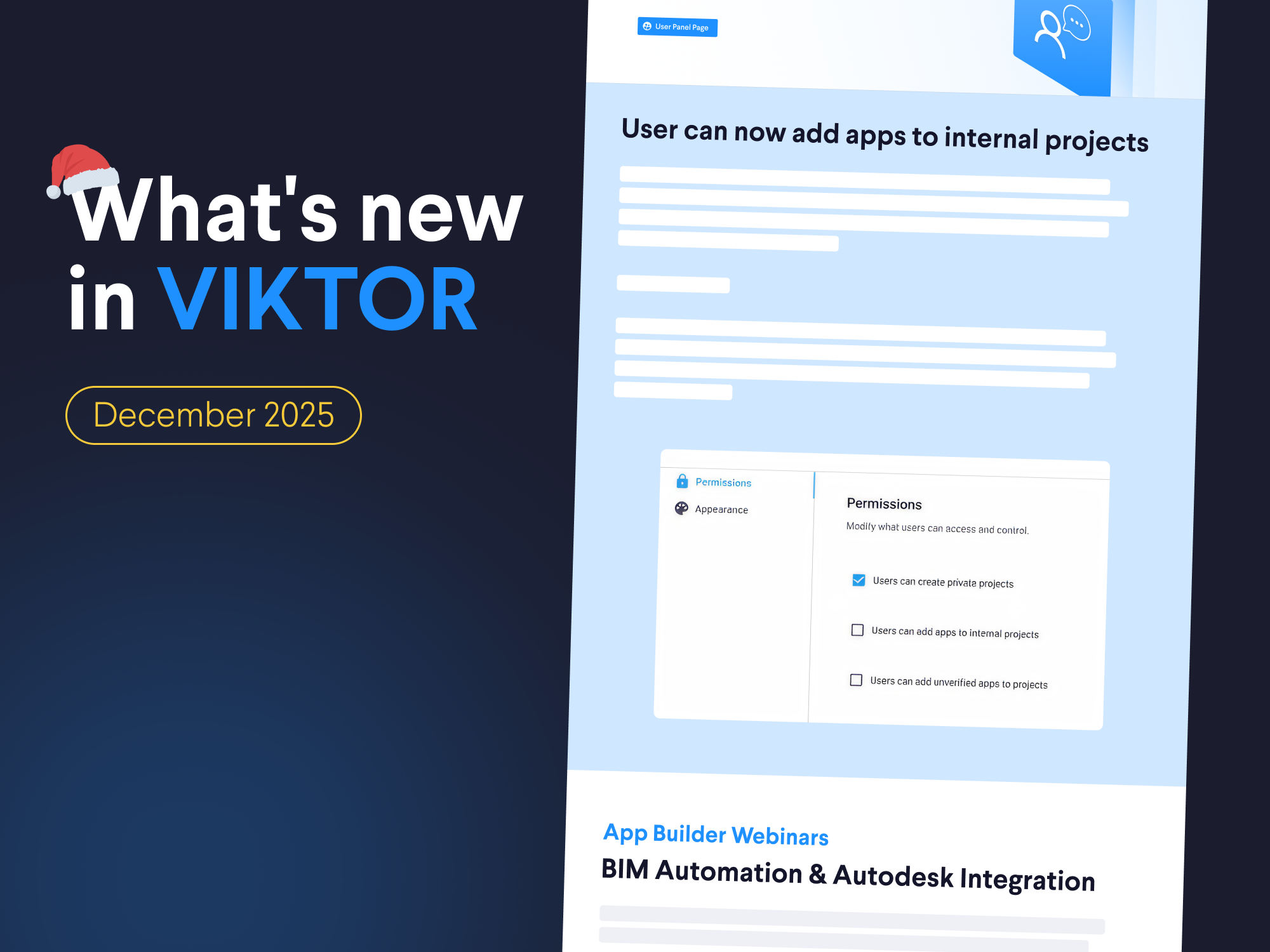January 12, 2024
What's new in VIKTOR (January 2024)
by VIKTOR Team
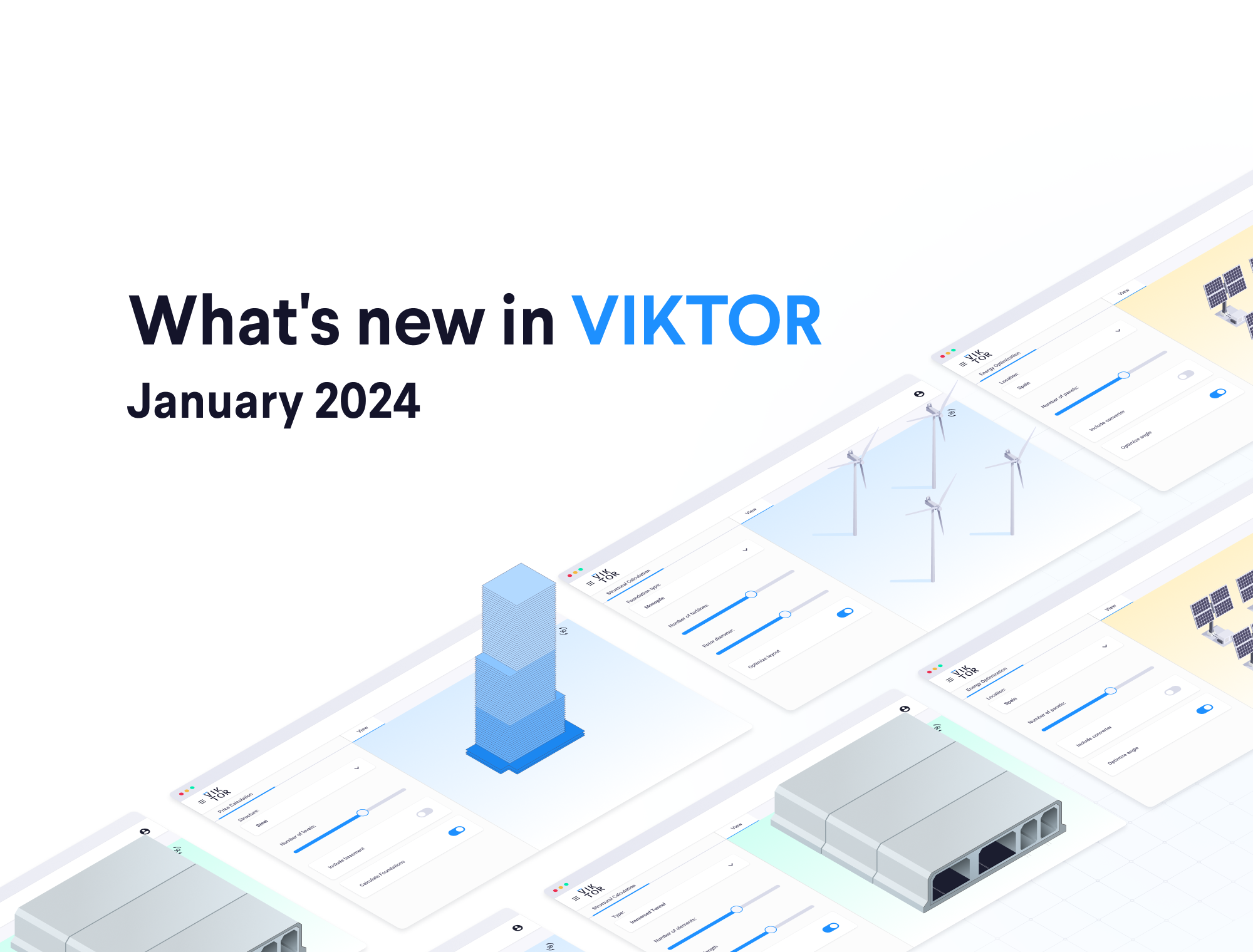
System dependencies
While creating apps on the VIKTOR platform most of you will have used packages from the rich Python ecosystem. These packages can be used by simply including them in the requirements.txt file in your app code. During the publication of your app, we make sure that these dependencies are installed so your app can run without any problems.
However, for some applications, you might want to use extra dependencies that cannot be installed using* pip*. Until now we didn't provide support for such additional system dependencies. This changes with our latest platform release. As a developer, you define the necessary package(s) in the viktor.config.toml file to ensure your app receives all required dependencies. The support for the installation of system dependencies opens up the possibility of creating many new applications. For example, apps that use tesseract for optical character recognition or glpk for solving optimization problems.
Find out more in the documentation!
Share apps with your colleagues!
It's now easier than ever to collaborate on projects with your colleagues. You can easily share a workspace (of any type of visibility) with anyone in your organization, either by sharing the link with them or by inviting them through e-mail.
If your colleague does not yet have access to the workspace you'd like to share with them, they'll see the option to request access first. After submitting the request, your organization's administrator will take care of adding them.
Sharing not only works for already existing users but for people who don't have a VIKTOR account yet as well. In this case, the environment admin can add them and provide them with the right access permissions right away.
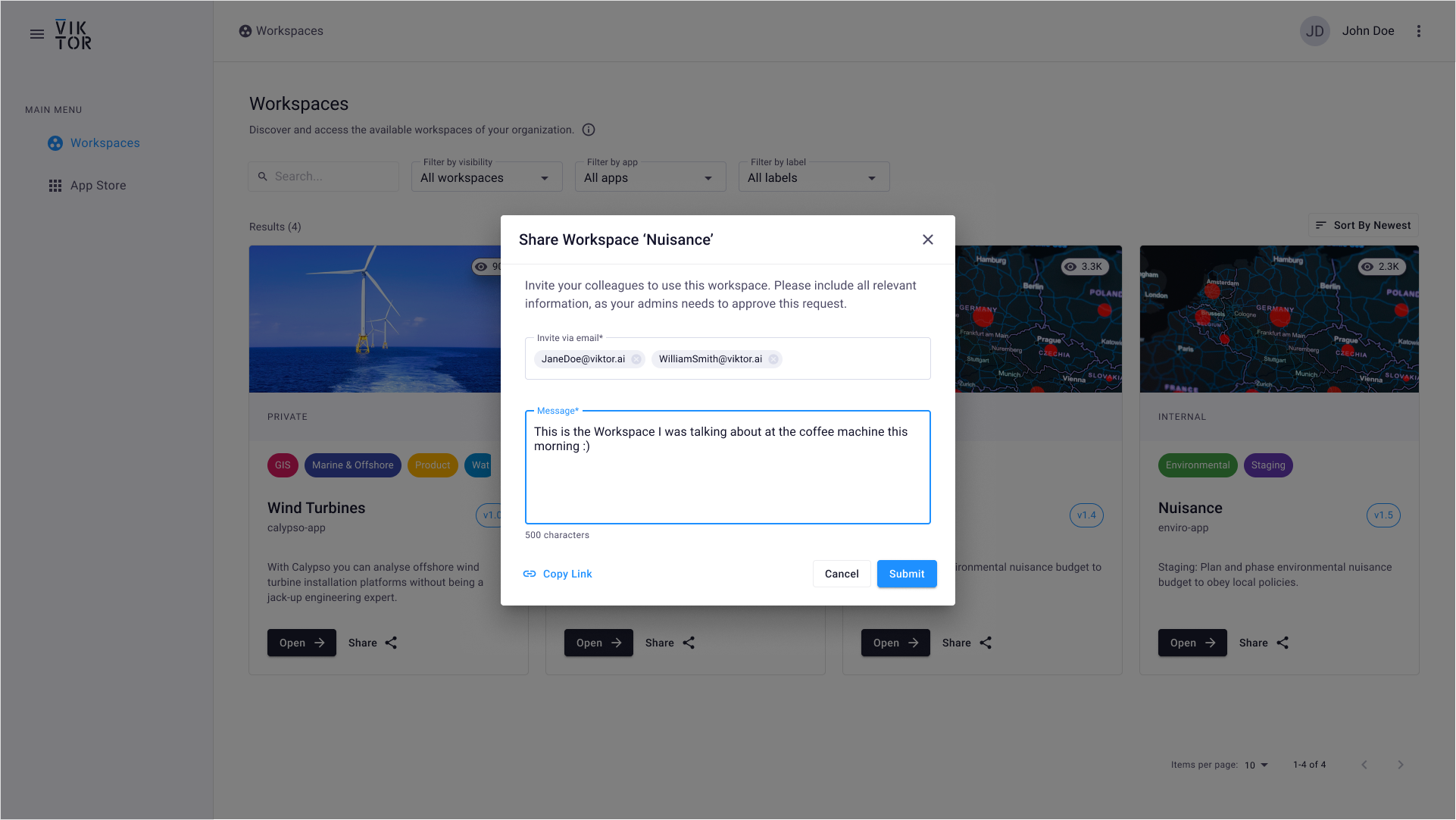
Simplified user creation
We have simplified the process of creating users for environment admins. From now on, when creating a user, only a person's email address is required.
As for the users, they can easily adjust their first and last names at any given moment later on through their personal settings.
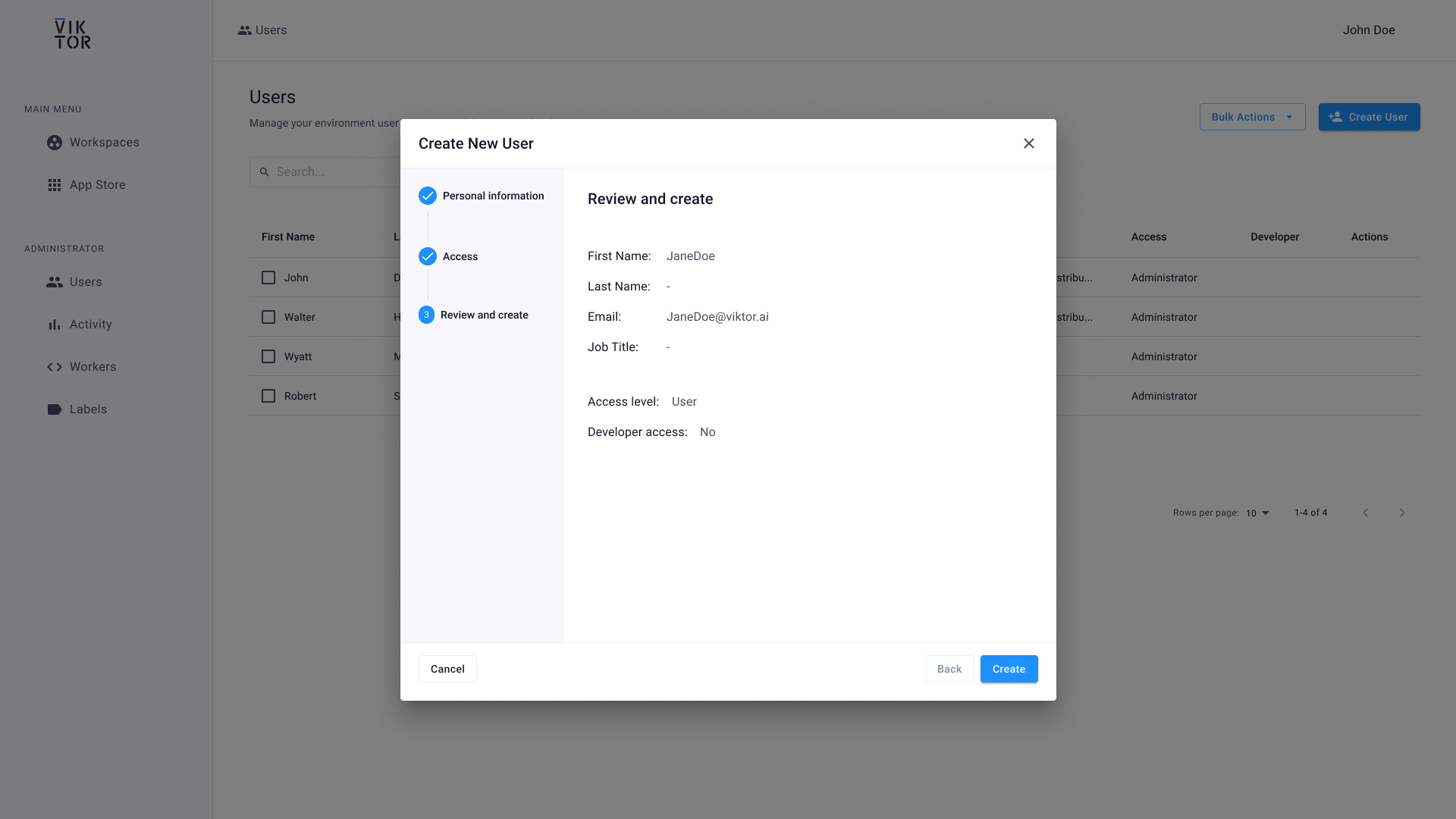
Visibility on tabs, pages, and sections
Before, you could already adjust visibility on separate fields in your parametrization. From now on, you can also choose to hide pages, tabs, or sections. This feature allows you to hide irrelevant information from your users, improving their experience with your app!
A visibility argument has been added on pages, tabs, and sections that allows you to either show or hide the component or even make it conditional based on specific inputs.
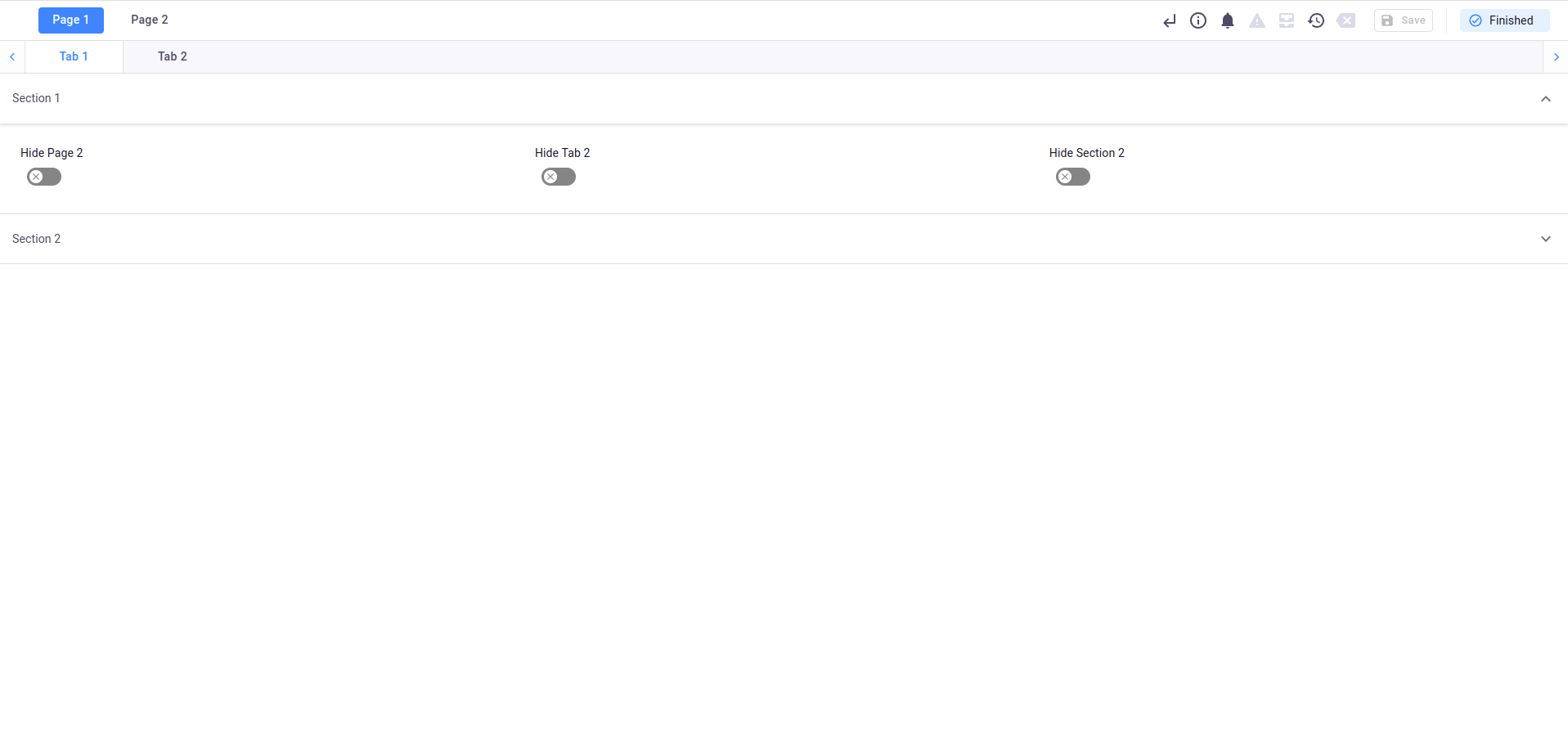
Adjust the width of pages or steps in the parametrization
Previously, it was already possible to adjust the parametrization width of specific editors. To provide you with more flexible customization options, it's now also possible to adjust the parametrization width of individual pages or steps.
Visit the documentation to find out how to further customize your app's parametrization.
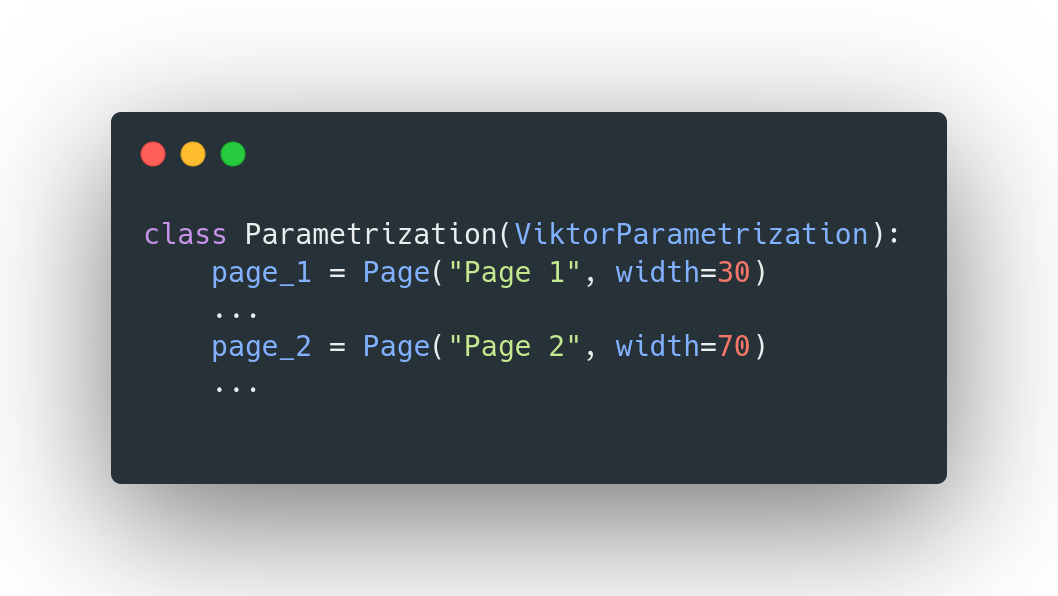
We now support Python 3.12!
You can now use the most recent Python minor version - version 3.12 - which allows you to use all the latest features, such as more flexible f-string parsing and various performance improvements resulting in an estimated 5% improvement (see the full list of new features here).
Simply install Python 3.12 on your computer and use viktor-cli configure to select Python 3.12 for developing apps locally. To publish apps with Python 3.12, define it as the* python_version* in your viktor.config.toml file. Please visit the documentation for more details.
Community spotlight
This month in the community spotlight we have Samaila Kamal's application for designing your own Pad Footing foundation. Besides building the app, Samaila also wrote an article, including a tutorial on turning your Python script into a web app for Pad Footing. Make sure to check it out!
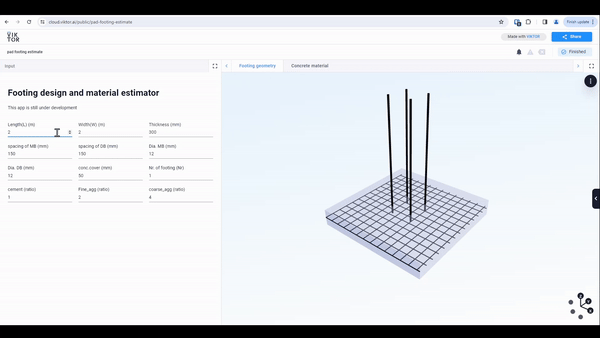
You can try it now here.
Would you like to share your application with the rest of the community as well? Please let us know by sending an email to support@viktor.ai!
Other changes
SDK
- SDK version v14.7.0 is now available: changelog
CLI
- CLI version v0.33.0 is now available: changelog
PLATFORM
-
Added a loading state to the output panel while it is updating
-
Adjusted the DownloadButtonField to be available when the editor is in locked or read-only mode
-
Adjusted environment activity pages to persist their filter state in the URL
-
Adjusted tooltip styles throughout the application to be visually aligned
-
Reverted ChildEntityManager to open children in a new tab
-
Fixed GeoJSON fill-opacity and stroke-opacity not rendering correctly when the value is 0
-
Added support for changing the visibility of pages, tabs, and sections
-
Added the ability to invite a colleague to a workspace
-
Changed create and edit user dialogs to no longer require a first and last name
-
Refined font sizes and spacing to improve usability on mobile devices
-
Adjusted first-time user onboarding to only show the skip button to existing users
-
Changed the geometry view skybox to a static gradient instead of a skydome
-
Adjusted text on the developer onboarding flow to indicate support for Python 3.12
-
Fixed onboarding to also trigger on login after password change
-
Fixed onboarding to correctly detect new users
-
Updated the Activation email to be more personalized and include relevant information
-
Added search on label names for Apps and Workspaces pages
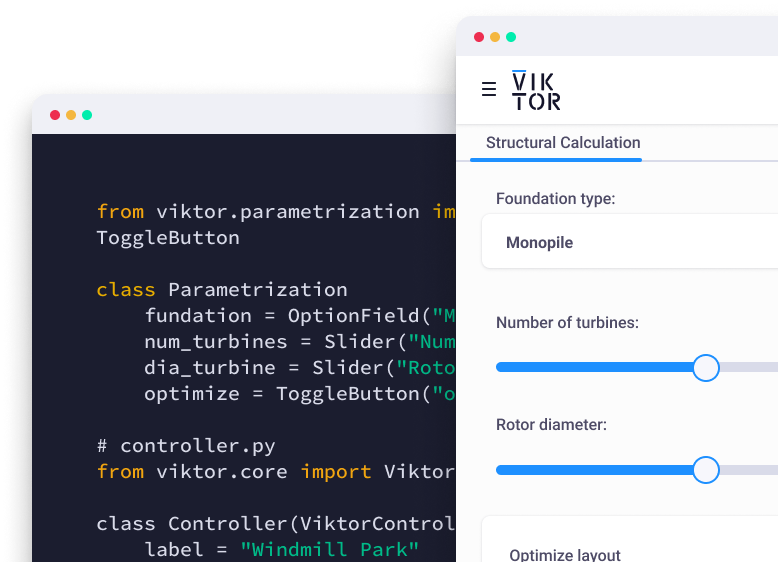
Start building apps for free
Related Blog Posts
Get our best content in your inbox
Subscribe to our newsletter and get the latest industry insights
